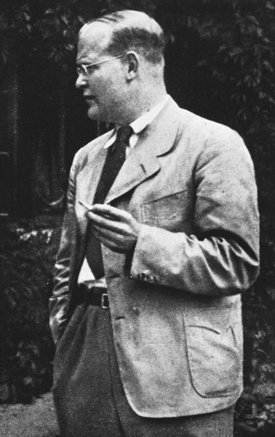Fourth in a Series

There are several reasons I am enthusiastic about David Brooks’ new book, “The Second Mountain.” One is that Brooks seems to have embraced a philosophy I teach students at St. John’s University, the philosophy of personalism.
One illustration of that philosophy is evident in a section in which Brooks refers to the Lutheran minister-theologian Dietrich Bonhoeffer, who courageously opposed the Nazis during World War II. Brooks writes the following:
“We think of giving up something we do on rare occasions, on Christmas and birthdays. But the German theologian Dietrich Bonhoeffer argued that giving is the primary relationship between one person and another, not the secondary one. It is family member to family member. Friend to friend. Colleague to colleague. People to community. It is the elemental desire to transform isolation and self-centeredness into connectedness and caring. A personality awakens itself by how it gives.” (p.71)
I agree completely with Bonhoeffer’s view of the human person. To be a human person is to be called to be a gift-giver, which is another way of saying that to be a human person is to be called to be a lover. That is the primary vocation of every person.
Our culture can deceive us and prevent us from seeing this and even encourage us to deny it, but it is a truth that is rooted in our very being. It is what God creates when God creates a human person. God, as it were, has built into every person a radical vocation and that vocation is to be a lover.
I think that if we do not know this truth about ourselves, then we do not know the depth of ourselves. If we do not know this truth about ourselves, our answer to the question “Who are we?” will not be as deep as it can be.
Of course, if people’s jobs help them to see more deeply into their identity and into the identity of others, that can be a special blessing. Brooks writes the following:
“A job is a way of making a living, but work is a particular way of being needed, of fulfilling the responsibilities that life has placed before you. Martin Luther King Jr., once advised that your work should have length — something you get better at over a life time. It should have breadth — it should touch many other people. And it should put you in service to some ideal and satisfy the soul’s yearning for righteousness.”(p. 123)
At St. John’s, I urge seniors to choose jobs that they can love. My experience has been that the happiest people are those in service professions. All of us want to believe that we are making a difference.
Brooks devotes many pages to various types of commitment. I find all his comments filled with wonderful insights. I am going to recommend a section of the book on vocation to a priest I know who deals with guiding seminarians in the process of discerning their future.
In rereading “The Second Mountain,” I have come to appreciate more the many wonderful insights that Brooks has into vocation and commitments. I have a positive reaction to the entire book, but I am especially moved by Brooks’ discussion of the commitment involved in religious faith.
In trying to understand what a religious life commitment involves, Brooks appeals to great thinkers such as St. Augustine, Soren Kierkegaard and Victor Frankl. Over a period of more than 25 years, I have had more than a thousand students at St. John’s read Frankl’s “Man’s Search for Meaning.”
Most have judged it one of the best books they have read. Reporting on a dramatic experience that he had amidst a crowd of people in Penn Station, Brooks writes the following:
“I suddenly regarded the whole crowd with a kind of awe, a reverence, not from the depth of a particular morning but from the depth of centuries. If you think about that for a bit, you are confronted by the possibility that we are connected not just with the souls living now, but with the souls of all the people who have ever lived, from generation to generation, who are still present today because this underlying animating spirit is still and always omnipresent. And if there are souls, it’s a short leap to the belief that there is something that breathed souls into us through an act of care and love. I remember that as quite a wonderful thought.” (p. 211)
It is a wonderful thought, and I suspect readers of this column have had similar thoughts. We should try to appreciate how awesome such thoughts are and allow that awe to influence how we live.
Father Lauder presents two 15-minute talks from his lecture series on the Catholic Novel, Tuesdays at 9 p.m. on NET-TV.
